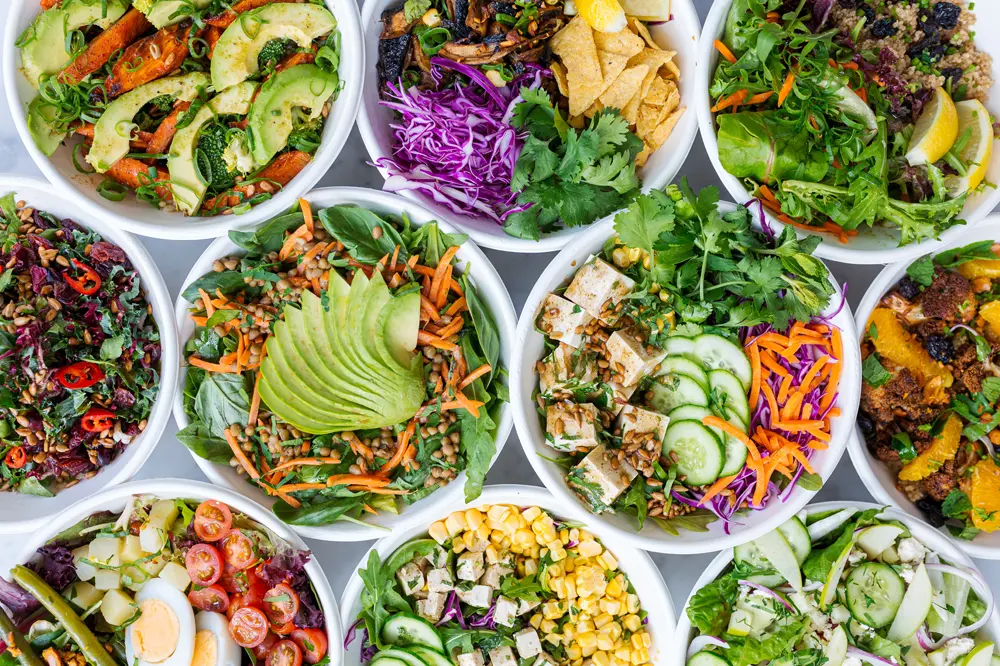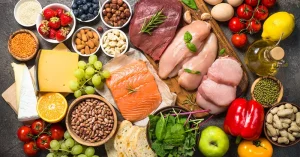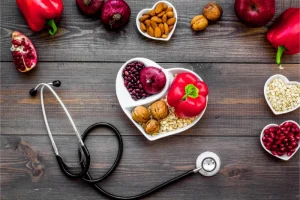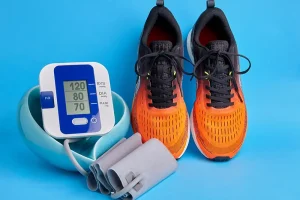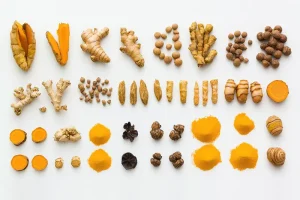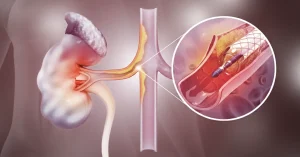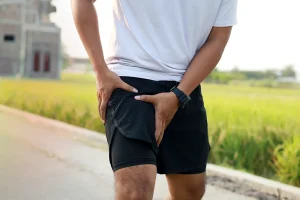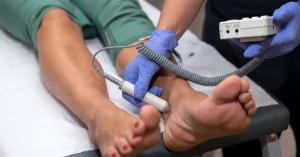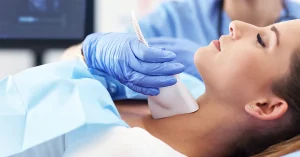Diet after cholecystectomy – what foods are allowed and which are prohibited after gallbladder removal surgery? This is one of the most common questions patients ask, especially after undergoing this procedure. In this article, we will explain the principles of the post-cholecystectomy diet and answer as many questions as possible.
What Is a Post-Cholecystectomy Diet?
A post-cholecystectomy diet defines what you are allowed to eat after gallbladder surgery. The diet may be restrictive at first, but it becomes more permissive over time.
The elimination of bile from the body often leads to medical issues known as post-cholecystectomy syndrome. The most common symptoms include:
- nausea and bitter taste,
- pain under the right rib cage,
- heartburn,
- intestinal transit problems.
How Long Should I Follow a Diet After Cholecystectomy?
The diet should be followed during the postoperative period, especially when symptoms are present. However, fats of any kind should be avoided permanently, as they can trigger attacks, nausea, and vomiting.
List of Foods Allowed After Gallbladder Surgery
- White chicken meat
- Turkey or beef
Meat should be boiled, baked, steamed, or grilled. Herbs and vegetables may be used for extra flavor.
Lean fish may be consumed fresh, baked, fried, boiled, or as a fillet.
Dairy products such as mild cow’s milk cheese, milk, yogurt, and buttermilk may be consumed, but they should be introduced gradually and not immediately after surgery.
Bread should be consumed in small amounts. Refined grains should be cooked thoroughly, at least 15 minutes longer than indicated on the package.
Vegetables such as zucchini, carrots, lettuce, green beans, peppers, tomatoes, eggplant, cauliflower, or spinach can be eaten as sautés, soufflés, purées, salads, or puddings. Potatoes should be eaten baked or boiled.
Well-ripened fruits may be consumed as fruit purées, juices, compotes, or in various dishes.
Eggs may be consumed in moderation as diet omelets, depending on individual tolerance. Your doctor will guide you on this.
Aromatic herbs such as dill, lovage, parsley, tarragon, thyme, and bay leaves may also be consumed.
Soups such as homemade chicken soup, vegetable creams, light meat or bone soups, and borscht are allowed.
Dietetic sauces with little fat and minimal flour for binding are acceptable. Starch-based thickeners should be avoided.
Diet-friendly desserts may include cottage cheese, fruit, fruit juice jellies, honey, or diet biscuits.
Hydration is important. Drink still or low-mineral water. Carbonated mineral water should be avoided.
Salt can be consumed in normal quantities unless contraindicated by your doctor.
Daily Menu After Cholecystectomy
After surgical removal of the gallbladder, patients should eat smaller, more frequent meals — ideally three main meals and two snacks per day.
Recovery after cholecystectomy varies between two and four weeks, depending on the type of surgery. Healing is faster after laparoscopic surgery and longer after traditional open surgery, which requires abdominal muscle suturing. Muscle healing may take about one month.
During this period, avoid activities that increase abdominal muscle tension, such as heavy lifting, intense exercise, or situations that cause bloating and constipation. These may cause internal complications. To prevent this, avoid foods that cause bloating such as legumes (beans, lentils, chickpeas, peas), certain raw fruits, and cabbage.
Recommended foods include:
- protein sources such as fish, skinless chicken, turkey, veal, skimmed milk, yogurt, cottage cheese, or ricotta,
- fruits and cooked vegetables,
- whole grains such as oats, flax seeds, brown rice, whole grain bread.
On the first day after surgery, patients should consume only liquids and light foods such as clear soups and cottage cheese. If the surgery was performed urgently, this phase may last 2–3 days. Maintaining proper hydration is crucial, with plenty of plain water, herbal teas, or natural juices.
A proper diet after surgery helps reduce pain and discomfort while supporting the body’s adaptation to its new condition. A diet rich in fiber is especially important for maintaining regular bowel movements. In the first few days, intestinal transit may be slow. If diarrhea occurs, simple foods such as rice, boiled chicken, and mild spices are recommended.
After gallbladder removal surgery, avoid: fatty pork, rancid foods, bacon, sausages, cold cuts, ham, beef, cream, high-fat sour cream, whole milk, cheese, butter, chocolate, cream cakes, pizza, fast food sandwiches, wafers, snacks, chips, and semi-prepared or frozen foods.
Oil is not completely prohibited but should be used in moderation. Foods such as cheese, cottage cheese, eggs, nuts, and fatty seeds (pumpkin or sunflower) should also be consumed with caution.
Alcoholic beverages are prohibited during recovery.
Foods Not Recommended After Gallbladder Surgery
- Fatty lamb, pork, game, goose, sausages, canned meat, fatty fish
- Fatty or fermented cheeses, high-fat cream, or processed cheese
- Fried eggs, omelets with sausage, or spicy ingredients
- Mayonnaise and excess egg yolk
- Fried fats of any kind: lard, bacon, butter, tallow, palm oil
- Flour products or pastries, especially cream cakes, fatty cakes with butter, or desserts with hazelnuts, walnuts, coconut, cocoa, chocolate, or ice cream
- Soups enriched with egg yolk, fatty soups, and borscht with sour cream
- Spices such as pepper, hot paprika, mustard, or anything excessively spicy
- Carbonated drinks and mineral water, as they may cause bloating
Failure to follow the diet after cholecystectomy can lead to symptoms such as bitter taste, diarrhea, persistent diarrhea, nausea, vomiting, right-sided rib pain, and loss of appetite.
Medical Recommendations from the Venart Clinic
Our doctors at the VenArt Clinic provide expert guidance to ensure safe recovery and prevent post-cholecystectomy complications. Here are some recommendations you can follow:
- Maintain a moderate, balanced diet. Small, frequent meals are ideal. Avoid fats so that the small amounts of bile available in the intestine are sufficient for digestion.
- Report any changes during recovery to your doctor. Persistent digestive symptoms require a medical visit, as they may indicate complications.

